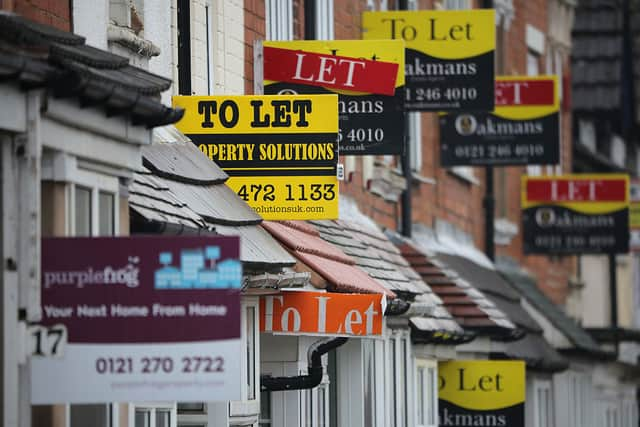Cost of living: What legal rights do UK tenants have when renting as landlords given new powers
New plans have been proposed by the government to crackdown on anti-social behaviour by granting further powers to landlords. The proposals will allow landlords to remove ‘nuisance tenants’ with two weeks notice.
The new measures would cover instances of tenants playing loud music, using drugs, causing damage to their property or falling behind on their rent. Clauses that ban specific anti-social behaviour would be written into new tenancy agreements.
Advertisement
Hide AdAdvertisement
Hide AdThese measures are part of a £160 million plan announced by prime minister Rishi Sunak to put a stop to anti-social behaviour. Also included will be increased levels of policing in some parts of the country.
But what are your rights as a tenant renting in the UK and how much can your landlord increase your rent? Here’s everything you need to know.
How much can my landlord increase my rent?
According to Citizen’s Advice, landlords cannot increase rent whenever they like or by any amount as there are certain rules they need to follow depending on the type of tenancy. Most tenants have a rental agreement called an assured shorthold tenancy.
Some of these are rolling contracts - meaning tenants pay rent weekly or monthly, with no fixed end date. In England, the landlord:
- can usually only put up the rent once a year
- must give at least one month’s notice
Advertisement
Hide AdAdvertisement
Hide AdIf you have a fixed agreement, it usually runs for six or 12 months.
The landlord normally can’t put the rent up until the fixed term ends - unless the contract has a rent review clause and must give at least one month’s notice. If the fixed term is 12 months, landlords must give six months’ notice.
Housing laws and renting rules are different in Wales, Scotland and Northern Ireland.
UK tenant legal rights and responsibilities when renting


UK tenants have certain rights and responsibilities if they live in a privately rented property. According to gov.uk, you have the right to:
- live in a property that’s safe and in a good state of repair
- know who your landlord is
- have your deposit returned when the tenancy ends - and in some circumstances have your deposit protected
- challenge excessively high charges
- live in the property undisturbed
- see an Energy Performance Certificate for the property
- be protected from unfair eviction and unfair rent
- have a written agreement if you have a fixed-term tenancy of more than 3 years
Advertisement
Hide AdAdvertisement
Hide AdIf you have a tenancy agreement, it should be fair and comply with the law. If you do not know who your landlord is, write to the company or person you pay rent to. Landlords can be fined if they do not give you this information within 21 days.
When you start a new assured or short assured tenancy, your landlord must give you a copy of the ‘How to Rent’ guide if you live in England or a tenant information pack if you live in Scotland.
Your responsibilities as a tenant include:
- giving your landlord access to the property to inspect it or carry out repairs (landlords must give at least 24 hours’ notice)
- taking good care of the property
- paying the agreed rent, even if repairs are needed or you’re in dispute with your landlord
- paying other charges as agreed with the landlord, for example Council Tax or utility bills
- repairing or paying for any damage caused by you, your family or friends
- only subletting a property if the tenancy agreement or your landlord allows it
Landlords have the right to take legal action to evict tenants if they do not carry out their responsibilities.
Comment Guidelines
National World encourages reader discussion on our stories. User feedback, insights and back-and-forth exchanges add a rich layer of context to reporting. Please review our Community Guidelines before commenting.
